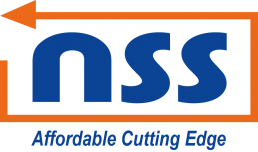Datto. Disaster Recovery: Performance Matters
In today’s fast-paced, always-on era, businesses rely on round-the-clock data availability and enhanced performance to stay competitive. As such, even a short duration of system downtime, data unavailability, or even a reduction in nominal performance, can significantly impact the business.
While on one hand the amount of data being created, processed and stored is increasing rapidly, on the other, the demand for higher throughput and 24/7/365 performance of vital operations for business productivity is greater than ever before.
This begs the question: How would you, as an MSP, ensure your clients’ business keeps running at the same speed in the event of a cyberattack, natural disaster, equipment failure or human error? Depending on unreliable, outdated backup and disaster recovery technology could result in performance lags and prolonged downtime, and could increase the risk of losing data to corruption. For MSPs, having a reliable business continuity and disaster recovery (BCDR) solution is critical to delivering the same level of functionality and performance of systems and processes during disaster recovery as in normal circumstances.
Today’s demanding workloads require advanced BCDR solutions with high-performance disaster recovery capabilities, such as Datto SIRIS NVMe SSD models that are purpose-built for MSPs to ensure their customers’ business is always running and resilient to disasters.
MSP challenges
Resource-intensive production workloads, such as database servers, require similar, superior performance from the disaster recovery (DR) infrastructure to ensure the continuity of user and business experience. For example, let’s say your client’s production environment uses solid-state drives (SSDs) for high-performance workloads. In that case, the DR infrastructure should match the performance of production workloads to meet strict recovery time objectives (RTOs) and client expectations.
NVMe SSDs allow ultrafast read-write and input/output (I/O) performance compared to traditional spinning hard disk drives (HDDs) or cheaper SATA/SAS SSDs. However, NVMe-based hardware can be costly, requiring MSPs and clients to carry significant capital expenditures (CapEx) upfront. It may be challenging to convince MSP leadership to invest more in an infrastructure that sits idle most of the time. The high costs of implementing superior BCDR solutions for clients with stringent RTO and performance requirements also result in MSPs settling for lower profit margins, often due to the prohibitive CapEx costs of premium hardware.
Win new clients and improve margins with Datto
MSPs can improve client satisfaction and create new revenue streams by delivering on requirements of demanding production workloads with high-performance on-site and cloud DR infrastructure based on NVMe SSD-based all-flash technologies.
Datto allows MSPs to implement highly efficient on-site and cloud DR for resource-intensive workloads, like database servers that require a lot of power and resources.
Datto SIRIS NVMe SSD models combine up to 10 times performance boost, rugged reliability and priority access to DR-optimized cloud nodes in the Datto Cloud for MSPs to deliver on requirements of even the most demanding clients, including meeting tight RTOs and protecting critical workloads.
While NVMe SSD-based servers can be costly, Datto SIRIS NVMe SSDs eliminate CapEx costs, allowing MSPs to save tens of thousands of dollars compared to other solutions requiring the purchase of own/their hardware and use of hyperscale clouds. For instance, it can cost up to $10,000 or more to perform a DR of a high-performance server in AWS or Azure.
In addition, Datto’s flat-fee subscription model gets rid of unpleasant surprises of hidden costs by including DR/backup cloud, hardware, software, storage and technical support, even for the premium high-cost hardware based on NVMe SSD technologies.
Source: Datto

